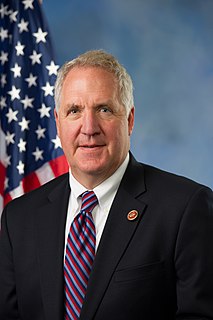A Quote by George W. Bush
We passed law that encouraged consumption through different purchasing habits like, you know, hybrid vehicles. You buy hybrid, you get a tax credit. We've encouraged the spread of ethanol as an alternative to crude oil. We have asked for Congress to pass regulatory relief so we can build more refineries to increase the supply of gasoline, hopefully taking the pressure off of price. And so the strategy is to recognize that dependency upon crude oil, in a global market, affects us economically here at home. And, therefore, we need to diversify away as quickly as possible.
Quote Topics
Affects
Alternative
Asked
Away
Build
Buy
Congress
Consumption
Credit
Crude
Crude Oil
Dependency
Different
Diversify
Economically
Encouraged
Ethanol
Gasoline
Get
Global
Global Market
Habits
Home
Hopefully
Hybrid
Increase
Know
Law
Like
Market
More
Need
Off
Oil
Pass
Passed
Possible
Pressure
Price
Purchasing
Quickly
Recognize
Regulatory
Relief
Spread
Strategy
Supply
Taking
Tax
Therefore
Through
Us
Vehicles
Related Quotes
Everybody has a gas-guzzling car because people like SUVs. They would like SUVs if they were hybrid vehicles that had the same horsepower and used less gasoline. Instead, what the auto manufacturers are doing is building SUVs that are hybrid vehicles that use the same amount of gasoline because they up the horsepower. That's a decision that they make to market irresponsible economic behavior. The American people like the SUVs, they have kids, they, they need them, they get around in them, but we have options.
About 75% of the price of gas is really dictated by crude oil. At the heart of the issue is increasing demand over a period of many years around the world. World crude oil consumption now is close to 90 million barrels a day. Most of the growth in demand is coming from China and the developing world.
This is an important generation for the future of hybrid vehicles. With these models as well as the Ford Escape and the Honda Accord we're starting to see hybrid versions of mainstream vehicles. The auto makers are giving customers a direct choice: to opt for hybrid technology on a given model, or not. Will they pay the premium for the hybrid technology when everything else about the vehicle is the same?
There are signs that the age of petroleum has passed its zenith. Adjusted for inflation, a barrel of crude oil now sells for three times its long-run average. The large western oil companies, which cartellised the industry for much of the 20th century, are now selling more oil than they find, and are thus in the throes of liquidation.






























